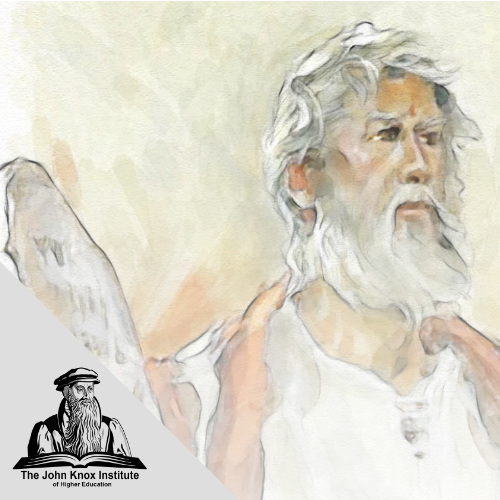| Lesson Number |
Title |
Summary |
| 1 |
Introduction |
In this first module on the Law of God, we will explore what we hope to study in this course on the law of God. Our full and final purpose of these studies is that we would echo the poet’s confession in Ps. 119:72. |
| 2 |
The God of the Law |
From our earliest childhood days, we resist someone else’s will when it counters ours. This internal attitude doesn’t change by getting older for we don’t like to be subject to the laws of God and men and neither can be. Do you still feel this way? |
| 3 |
Paradise and the Law |
No words can picture the beauty and joy Adam and Eve experienced in Paradise. But likewise, no words can describe the destruction caused by the rebellion of Adam and Eve against God. |
| 4 |
Jesus and the Law |
In this module we will examine why the Lord Jesus is called the ‘last Adam’ and how that is related to His announcement that He didn’t come to destroy the law of God. |
| 5 |
The Law and the Sinner |
In this module we hope to consider how God brings sinners to this awareness of ourselves and the need for the Lord Jesus Christ and His salvation. As we do, we discover that His law plays an indispensable role in that learning journey. |
| 6 |
The Law and the Saint |
None are more blessed than those who are called saints of God. Saved by grace, kept by grace, guided by grace and finally transferred from the realm of grace to the realm of glory. Such in short is the definition of the Gospel of God’s grace. |
| 7 |
The Law at Mt. Sinai |
Unforgettable and deeply moving was the scene at Mt. Sinai when God proclaimed His eternal Law to the people of Israel. Young and old, including all the leaders of Israel, stood trembling and drew back in holy awe. |
| 8 |
The First Commandment |
And God spake all these words, saying … and then follows the Ten. No God is greater than the Creator of heaven and earth and no law is better than the Ten Commandments. |
| 9 |
The Second Commandment |
Every direction in life begins the same way. It always begins with one step or one choice. They may seem small and insignificant. Yet the result of the first step will not be known till we have reached the end of our journey. |
| 10 |
The Third Commandment |
Often God speaks in His Word about that He does things for His holy Name sake. That means He exalts the glory of His character or Being by His own doings or works. None has as much right to exalt His own Name as God. After all, there is none Who can eve |
| 11 |
The Fourth Commandment |
“Lest we forget …“ Those words refer to the lives of fallen soldiers but also apply to God’s law. Particularly this applies to the one commandment many omit to honor. It is the command that doesn’t open with “Thou shalt not …”. |
| 12 |
The Fifth Commandment |
God gave us power when He designed the earth to be ruled through His representatives. These authority structures God established are for our good. They are intended to keep our living space orderly and thereby happy. |
| 13 |
The Sixth Commandment |
Generally all people value their life. It is because we were created to live forever and ever. |
| 14 |
The Seventh Commandment |
Solomon wrote that it is better to live in the corner of a housetop than with a brawling partner in big palace. The reason for this is simple. Nothing is so satisfying as a harmonious relationship. |
| 15 |
The Eighth Commandment |
The love of money is the root of all evil. Though Scripture supports this truth with so many examples, yet mankind doesn’t learn. |
| 16 |
The Ninth Commandment |
Witness bearing is a huge responsibility. It can make the difference of a life or death. It has saved nations from destruction and individuals from unjust sentences. |
| 17 |
The Tenth Commandment |
Young Saul was religious. He was zealous for God. He was one of those who thought he kept God’s law perfectly. He claimed to be blameless in obedience. That is until God enrolled him in the divine law school. |
| 18 |
The Law in Eternity |
Though the stone tablets today are lost, the significance better not be lost on us. They were meant to be permanent. |
